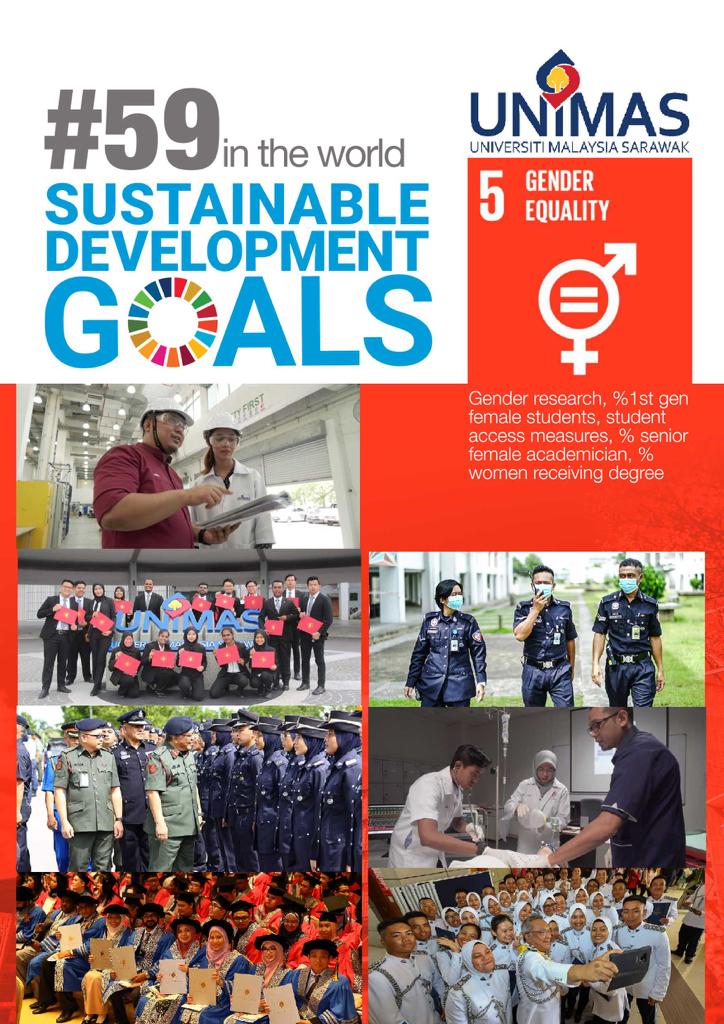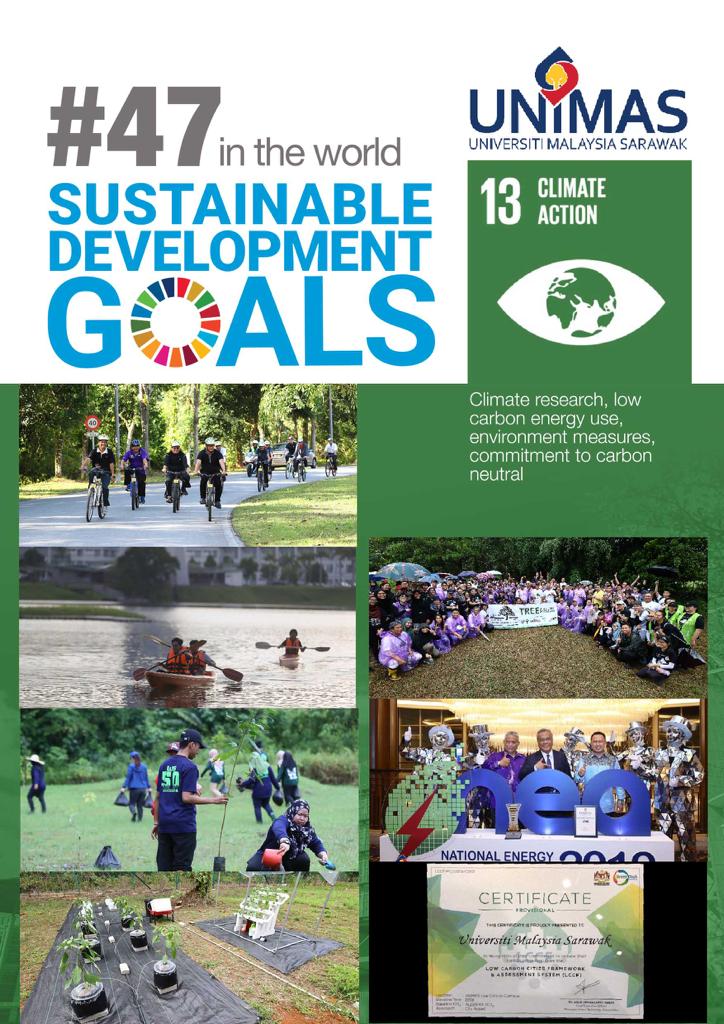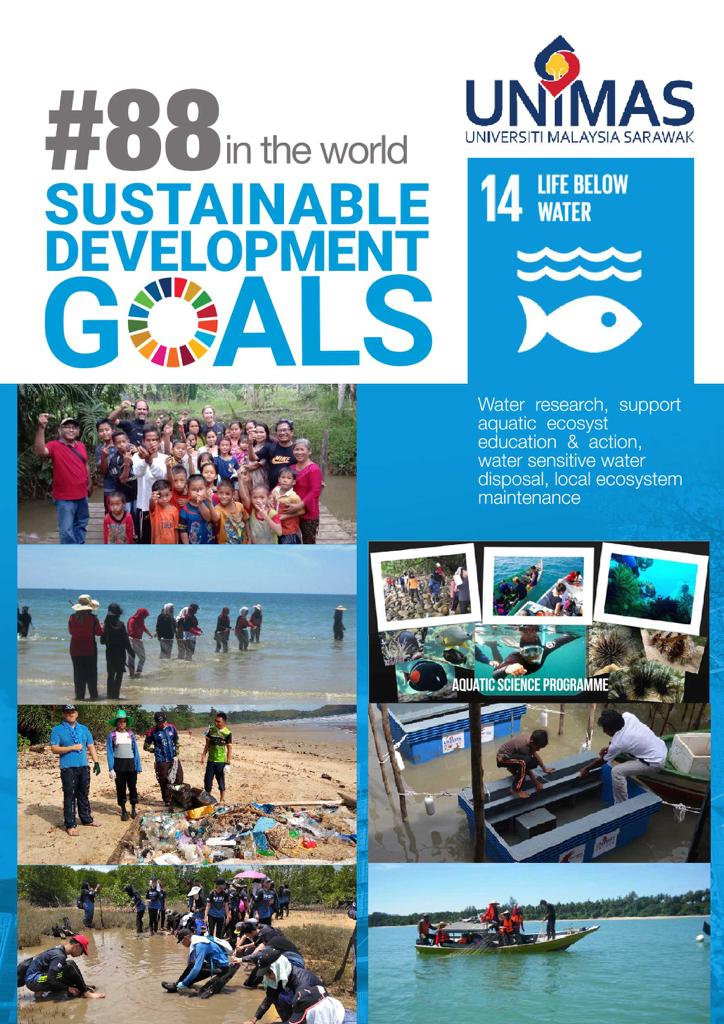- Community
- UNIMAS ranked UN Sustainable Development Goals (SDG)

SDG 5 - Gender Equality
Gender equality is not only a fundamental human right, but a necessary foundation for a peaceful, prosperous and sustainable world.
There has been progress over the last decades: More girls are going to school, fewer girls are forced into early marriage, more women are serving in parliament and positions of leadership, and laws are being reformed to advance gender equality.
Despite these gains, many challenges remain: discriminatory laws and social norms remain pervasive, women continue to be underrepresented at all levels of political leadership, and 1 in 5 women and girls between the ages of 15 and 49 report experiencing physical or sexual violence by an intimate partner within a 12-month period.
SDG 13 - Climate Action
2019 was the second warmest year on record and the end of the warmest decade (2010- 2019) ever recorded. Carbon dioxide (CO2) levels and other greenhouse gases in the atmosphere rose to new records in 2019. Climate change is affecting every country on every continent. It is disrupting national economies and affecting lives. Weather patterns are changing, sea levels are rising, and weather events are becoming more extreme.
Although greenhouse gas emissions are projected to drop about 6 per cent in 2020 due to travel bans and economic slowdowns resulting from the COVID-19 pandemic, this improvement is only temporary. Climate change is not on pause. Once the global economy begins to recover from the pandemic, emissions are expected to return to higher levels.


SDG 14 - Life Below Water
The ocean drives global systems that make the Earth habitable for humankind. Our rainwater, drinking water, weather, climate, coastlines, much of our food, and even the oxygen in the air we breathe, are all ultimately provided and regulated by the sea.
Careful management of this essential global resource is a key feature of a sustainable future. However, at the current time, there is a continuous deterioration of coastal waters owing to pollution, and ocean acidification is having an adversarial effect on the functioning of ecosystems and biodiversity. This is also negatively impacting small scale fisheries.
Saving our ocean must remain a priority. Marine biodiversity is critical to the health of people and our planet. Marine protected areas need to be effectively managed and well-resourced and regulations need to be put in place to reduce overfishing, marine pollution and ocean acidification.


